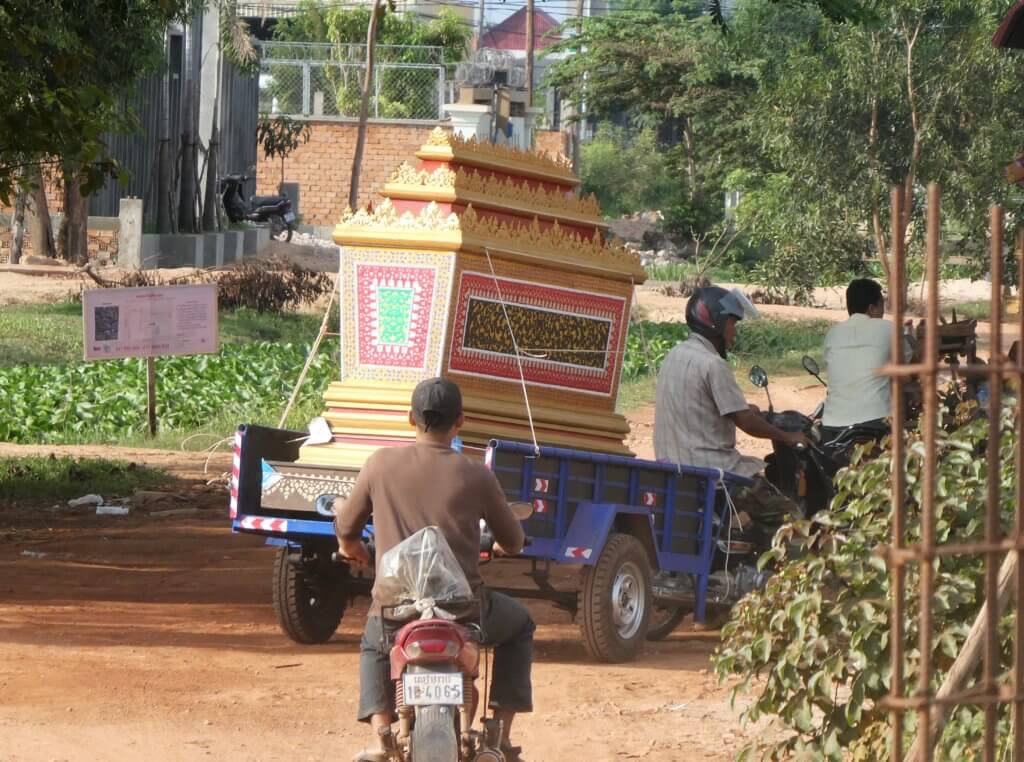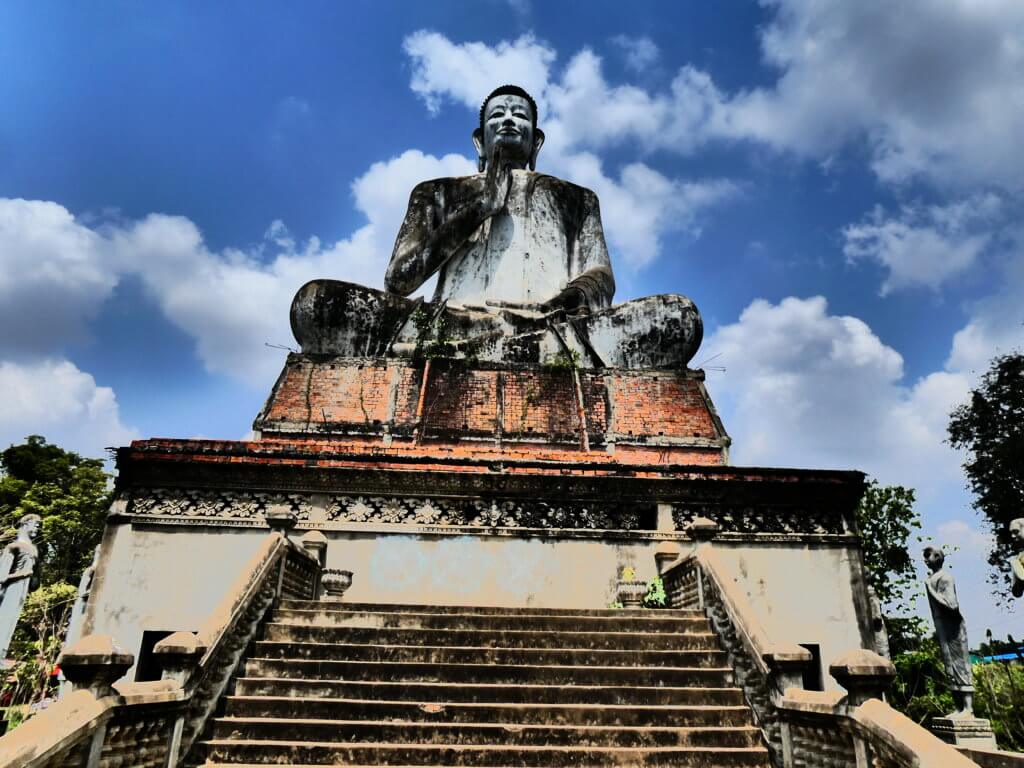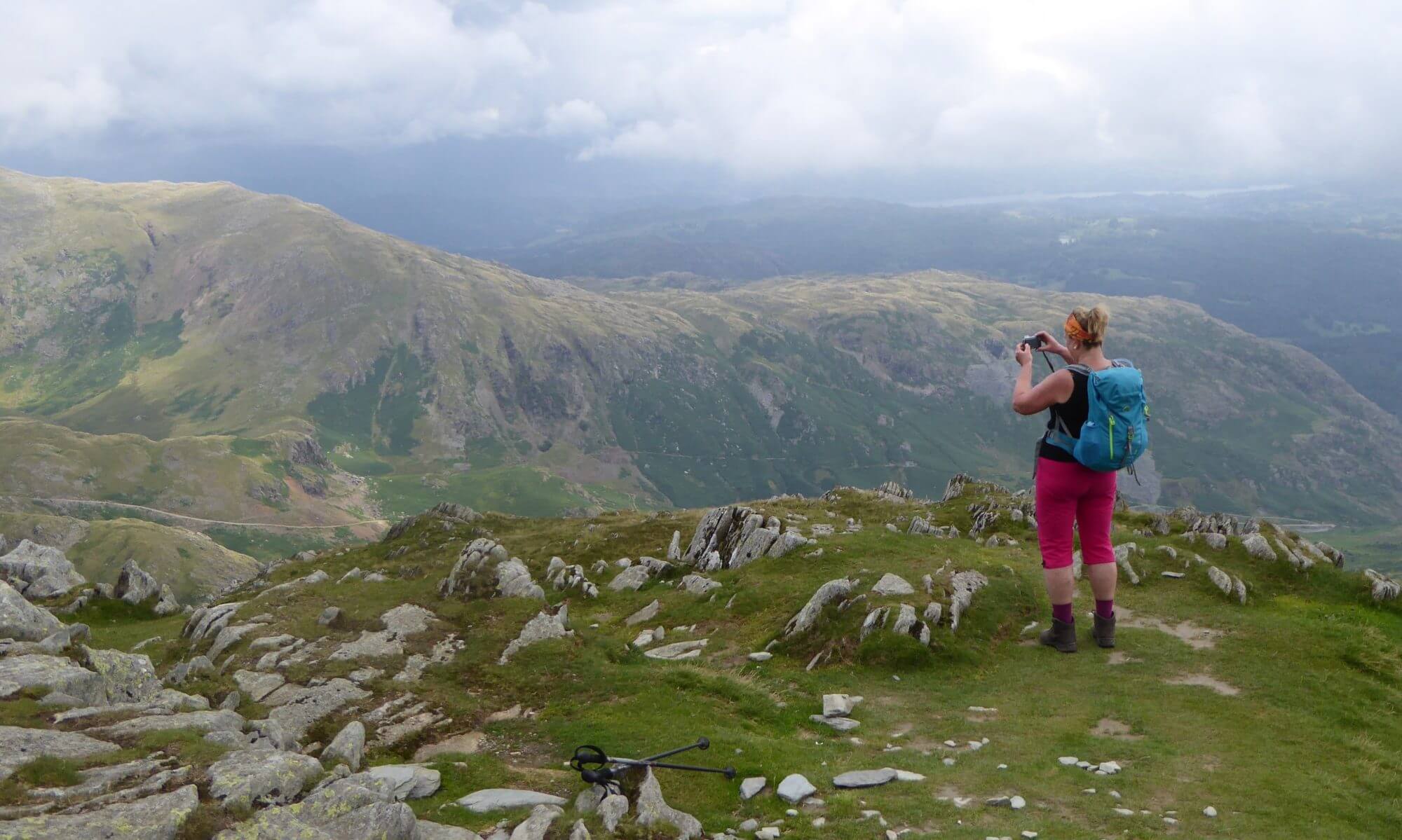One morning this week, I was awoken at 5.30 am by the chanting of monks nearby which announced to the community that a death had occurred. A short time later, as I went on my morning walk along the quiet dirt track which winds its way down to the river behind my house, the beautifully painted and decorated coffin passed me, towed behind a motorbike on its way to be delivered to the bereaved family.

In Cambodia, 95% of the population follow Theravada Buddhism. For Buddhists death is just one stage in the continuous cycle of birth, life, death and reincarnation. There are no funeral directors here and after death, the body is prepared for cremation at home by the family, following very specific rituals to ensure that the deceased has a smooth passage to the next stage, rebirth. The body is placed in the coffin and after three days of mourning at home, it is taken to the pagoda for cremation. The ashes are kept at the pagoda in the belief that a closeness to Buddha will speed rebirth.

How different an approach to death when compared to the sterile process in England. The dead are whisked away to a funeral parlour and we are removed from any contact with the body and mourning has disappeared. It is as if death is an unfortunate event rather than a natural process, one which needs the love and support of family, friends and the community, to be prepared for and accepted in the same way as birth. I was enthralled to listen to Kevin Toolis speaking on the radio about his experience when his father died on a small island off the coast of County Mayo, Ireland. He said that even in this tiny village, the local people would have seen many dead bodies and it was accepted that everyone including children, would go to the wake and the funeral; in doing so the mourners would share and ease the pain of the bereaved by praying, keening, eating and drinking. They “waked” the whole night through before the funeral; at the funeral Toolis said that it was a matter of “moral obligation” that everyone came up to him to offer their condolences and shake his hand and that by doing this, it was an affirmation that his father was really dead and not coming back which eased the emotional process of acceptance.
Listen to Kevin Toolis: https://www.bbc.com/ideas/videos/why-we-need-to-face-our-mortality/p065dm7f
Book available on Amazon: https://www.amazon.co.uk/My-Fathers-Wake-Irish-Teach/dp/1474605222/ref=sr_1_1?ie=UTF8&qid=1527424116&sr=8-1&keywords=my+fathers+wake
For myself I was reminded of my own mortality before leaving England by helpful friends pointing out to me that I was no longer 26 and was I aware of the risks of foreign travel? Not only that but the cost of health insurance for older people is horrendous! I don’t worry about dying but I have to say that I am going to ask for a wake when I die because it just seems so civilized and normal to accept death as openly as we accept birth. I will be sad to miss the party but hope that my friends and family will see fit to celebrate a life rather than mourn a passing.
©Copyright overthehils.com 2018


Could always have a pre wake party or a practice wake party😀
A very good idea!